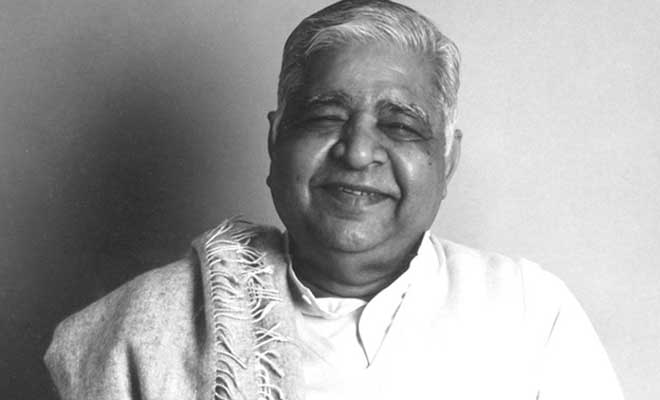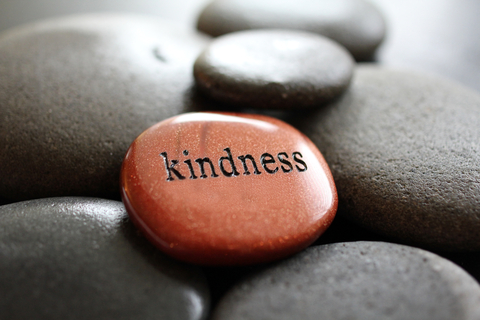Graham Lock
Last December, I took part in an 8-day metta meditation retreat at the Hong Kong Insight Meditation Society’s meditation centre at Fa Hong Monastery on Lantau Island.
The retreat was led by Visu Teoh, an experienced and well-respected teacher of vipassana and metta meditation based in Penang, and well known in Hong Kong as one of the Hong Kong Insight Meditation Society’s main teachers. The retreat was organised by Peta McCauley and others of the Hong Kong Mindfulness Teachers Network and intended primarily for teachers of Mindfulness Based Stress Reduction (MBSR) and Mindfulness Based Cognitive Therapy (MBCT). Many of the participants in fact turned out to be students on MBSR and MBCT courses at the Hong Kong Centre for Mindfulness.
I am not myself a teacher of mindfulness but I am of course aware of the enormous growth in popularity of MBSR and MBCT courses, not to mention the many far less rigorous mindfulness “products” on the market. I am also aware of the reservations some Buddhist teachers have expressed about them. As is well known, at least among Buddhists, the kinds of mindfulness practices taught on such courses developed from sati practices as introduced to the West by people like Jack Kornfield, Joseph Goldstein and Sharon Salzberg, and further popularized by Jon Kabat-Zinn and others.
However, the way mindfulness has been defined and applied in MBSR and MBCT courses has been criticized on the grounds that teaching the practice removed from its Buddhist context and defining mindfulness simply as “non-judgemental awareness” strips away its ethical dimensions and its role in the overall project of weakening and eventually eliminating the ‘three poisonous roots’ of ill will, greed and delusion. I personally don’t see the harm in offering to people who might not otherwise go anywhere near an overtly Buddhist center something that can help them suffer less, but it does seem a great pity if such courses fail to at least make students aware of the potentiality of applications of mindfulness beyond those taught, and of the value of other practices like metta that can also be developed without “becoming a Buddhist.”
Metta is a state of mind usually translated as “lovingkindness” though I have come to think of it as more like “warm friendliness.” My first taste of metta meditation was many years ago at the end of a standard 10-day Goenka vipassana retreat, but it was only in December 2015 when I first attended a metta retreat led by Visu, that I did the practice more intensively. At first I was quite skeptical. I think like a lot of people starting the practice, I felt a bit of a fraud – just mechanically mouthing a mantra with little or no ‘authentic’ feelings of warm friendliness for anyone. But over time, I have found it is possible to arouse metta not only for close friends but also for people I have no particular connection with and even for people I feel I may have good reasons to dislike. Arousing metta for all sentient beings remains a challenge, but doing the practice does seem to have significantly improved my attitudes towards and relationships with others, as well as my own feeling of well-being.

This is not to say that I go through life suffused with perpetual feelings of warm friendliness for everyone. Far from it. As always, the challenge is to maintain a practice after leaving a retreat, and a couple of events (that I am not going to relate) happened not long before this December’s retreat that made it clear to me that a nearly a year after my first intensive metta retreat I was in dire need of having my metta batteries recharged!
Coming back to the issue of MBSR and MBCT. I don’t know whether Helen Ma and others at the Hong Kong Centre for Mindfulness require or just strongly urge students on the Center’s courses to do a Buddhist meditation retreat during their training but it seems to me to be a very good idea. In particular, a retreat focusing on metta acquaints them with a ‘heart’ practice that perfectly complements mindfulness practice. MBSR/MBCT teachers with no background in Buddhism can also learn something of the context from which mindfulness practice emerged and of its wider applications.
In his evening dharma talks, Visu covered a lot of ground – as far as I can remember including at least the three other brahmaviharas (compassion, sympathetic joy and equanimity), the three marks of existence, the five aggregates, the three poisonous roots and the jnanas. From the questions asked it was clear that for at least some of the participants much of this was new and rather overwhelming. Nevertheless they seemed to be happy to have been made aware of aspects of Buddhist teaching that they could explore later, and in the final sharing session many of the participants expressed considerable enthusiasm for metta practice. How much of all this they may subsequently pass on to their students when they become MBSR and MBCT teachers themselves will of course depend on their judgment of what may be appropriate and useful for the kinds of students they are teaching, but it seems to me that for them to have had this experience cannot but enrich their teaching.


Are you interested in Ajahn Brahm’s thoughts on mindfulness practice/teaching? Here are two among several talks he’s given, spaced 6 years apart:
https://bswa.org/teaching/mn10-satipatthana-sutta-four-focuses-mindfulness-ajahn-brahm/ 7 years ago
https://bswa.org/teaching/the-mindfulness-retreat-trend-by-ajahn-brahm-2/ 1 year ago